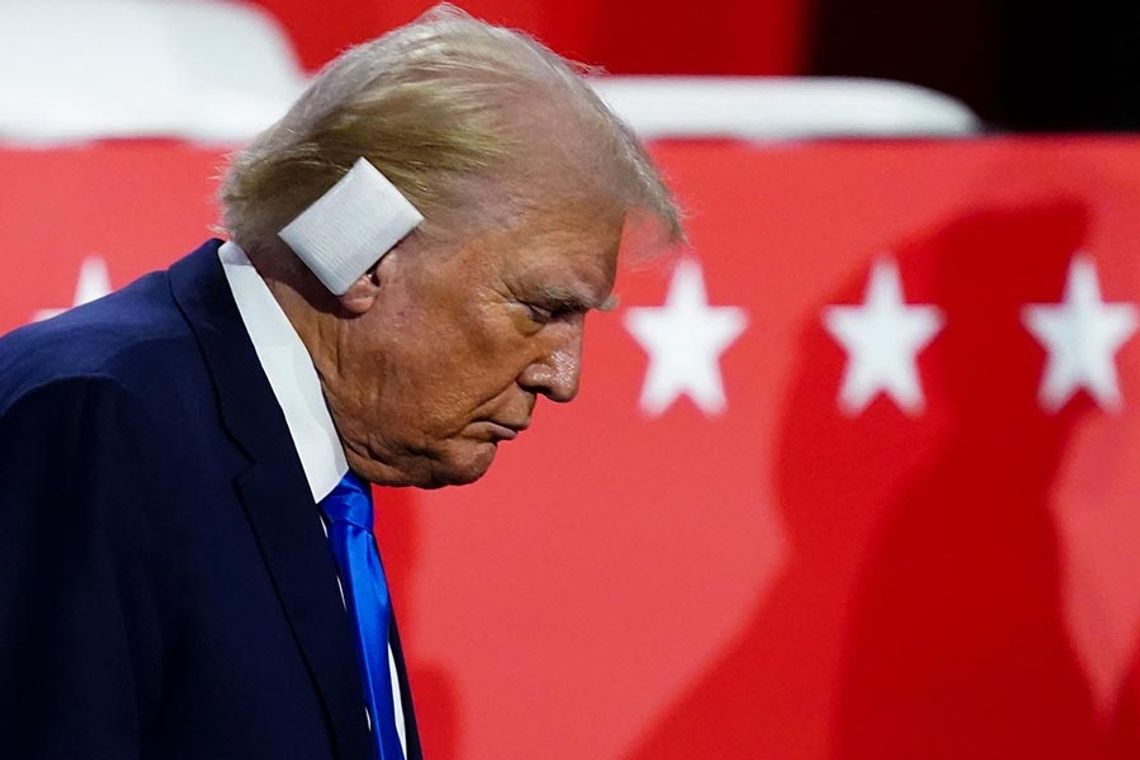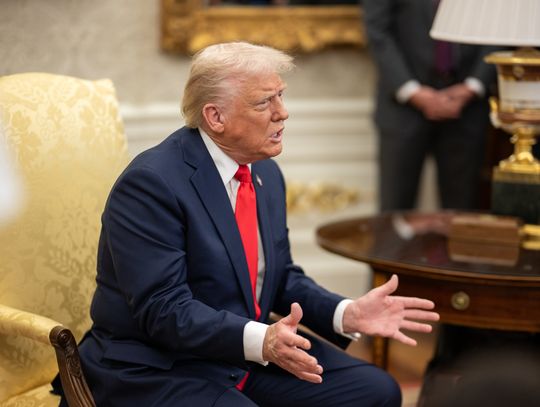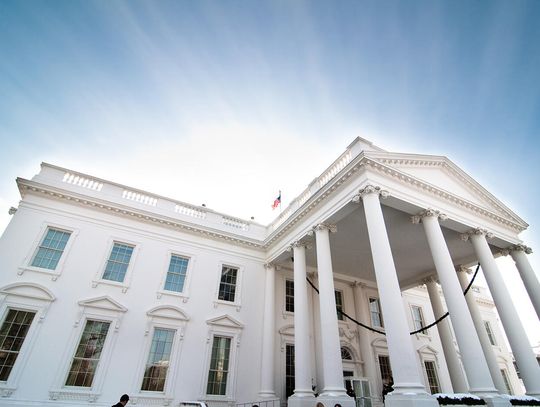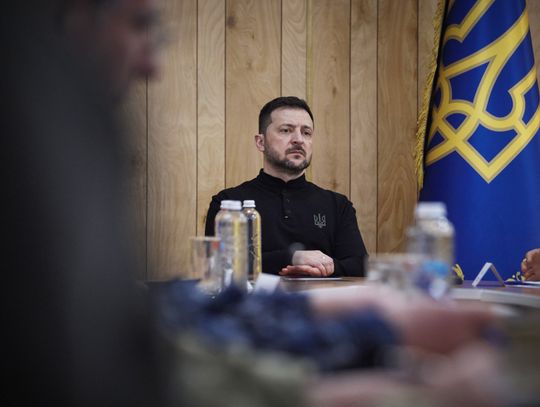W ubiegłą sobotę wieczorem zadzwoniła matka mojej żony.
Ona ma 99 lat i przeżyła wiele złych rzeczy – Wielką Depresję, drugą wojnę światową, wojnę w Korei, wojnę w Wietnamie. Pamięta wiele złych rzeczy. Pamięta, co robiła, kiedy zastrzelono Johna F. Kennedy’ego, Roberta F. Kennedy’ego i Martina Luthera Kinga. Pamięta nawet, jak ktoś próbował zamordować prezydentów Franklina Delano Roosevelta, Harry’ego S. Trumana i Geralda Forda (dwukrotnie) oraz Ronalda Reagana i George’a W. Busha.
Dzwoniła do nas, bo wie, jak wyglądają złe rzeczy, naprawdę złe i chciała nam powiedzieć, że ktoś próbował zabić Donalda Trumpa na wiecu w Pensylwanii.
Nie wiem, czy ona jest zwolenniczką Trumpa, czy nie. Ona nie lubi rozmawiać o polityce, prezydentach i ich programach. Uważa, że takie rzeczy powinny pozostać prywatnymi. Mówienie o tym, zwłaszcza gdy rozmawiasz o tym z ludźmi, którzy mogą się z tobą nie zgadzać, to jest to coś, czego najlepiej unikać – uważa.
Zadzwoniła do nas, by powiedzieć nam o strzelaninie, a nie rozmawiać o tym, czy będzie głosować na Bidena czy na Trumpa.
Wiedziała, że zdarzyła się bardzo zła rzecz i gdybyśmy o tym nie wiedzieli, to chcielibyśmy wiedzieć. I miała rację.
Z moją żoną Lindą wiedzieliśmy o wielu złych rzeczach, które wydarzyły się w Ameryce, a więc chcieliśmy wiedzieć i o tej. Włączyliśmy wiadomości i zaczęliśmy oglądać.
Strzelanina sama w sobie mnie nie zaskoczyła. 23 marca 2024 roku napisałem felieton do “Dziennika Związkowego” zatytułowany „Krwawa łaźnia” (Bloodbath) na temat retoryki przemocy w tych wyborach. Felieton zaczął się od słów, które Trump wypowiedział na wiecu w Ohio: „Jeśli nie wygram, to będzie powszechny rozlew krwi – co najmniej. To będzie rzeź dla kraju”.
Ten cytat i podobne brutalne cytaty Trumpa na przestrzeni lat sugerują mi, że rozumie on Amerykę – rozumie Amerykę prawdopodobnie lepiej niż Joe Biden.
Po próbie zamachu na Trumpa, Joe Biden wystąpił w telewizji i złożył oświadczenie. Powiedział: „W Ameryce nie ma miejsca na taką przemoc. To jest chore”.
To oświadczenie Bidena sugeruje, że on nie rozumie Ameryki. 99-letnia matka mojej żony wydaje się rozumieć Amerykę lepiej. Jeśli ją spytasz, odpowie ci, że Stany Zjednoczone są krajem przemocy.
Zacząłem ten tekst od omówienia przemocy wobec polityków w Stanach Zjednoczonych, ale oczywiście na tym ta przemoc się nie kończy.
Zgodnie z badaniami z 2022 roku, 7 z 50 najbardziej brutalnych miast na świecie o największej liczbie zabójstw znajduje się w Stanach Zjednoczonych: Nowy Orlean, Baltimore, Detroit, Memphis, Cleveland, Milwaukee i Filadelfia.
A przemoc rośnie. W 2023 odnotowano 346 strzelanin w szkołach w USA – największa liczba od 1966 roku. W tym samym roku 43 163 osoby w Stanach zmarły od odniesionych ran zadanych bronią palną. Według Gun Violence Archive w tym roku w USA doszło do ponad 290 masowych strzelanin. W tych masowych strzelaninach zginęło ponad 300 osób, a 1275 osób zostało rannych.
Tak, Biden ma rację. Przemoc tutaj jest chora. W zasadzie powiedziałbym, że mamy tutaj plagę przemocy i trwa to już od dłuższego czasu i wydaje się być coraz to gorsze.
Jak to powstrzymamy?
Nie może wam tego powiedzieć Biden ani nawet Trump. Prezydent nie może powstrzymać przemocy.
Jak lubi mawiać matka mojej żony: Ameryka to Stany Zjednoczone Przemocy.
—
Trump’s Shooting and The United States of Violence
Last Saturday afternoon, my wife’s mom called us up.
She’s 99 years old, and she’s lived through a lot of bad stuff, the Great Depression, World War II, the Korean War, the Vietnam War. She remembers a lot of other bad stuff. She remembers what she was doing when John F. Kennedy and Robert F. Kennedy and Martin Luther King were assassinated. She even remembers when someone tried to assassinate Presidents Franklin Delano Roosevelt and Harry S. Truman and Gerald Ford (twice) and Ronald Reagan and George W. Bush.
She was calling us up because she knew what bad stuff, really bad stuff, was like, and she wanted to tell us that someone had tried to kill Donald Trump at a rally in Pennsylvania.
I don’t know if she’s a Trump supporter or not. She doesn’t like to talk about politics and presidents and their policies. She feels that that kind of stuff should remain private. Talking about it, especially when you’re talking about it with people who may disagree with you, she feels is just something that is best avoided.
She was calling to tell us about the shooting, not to talk about whether she will vote for Biden or vote for Trump.
She knew that a bad, bad thing had happened and that, if we didn’t know it had happened, we would want to know.
She was right.
My wife Linda and I had seen a lot of bad things happen in America too, and we wanted to know about this one. We turned on the news and started watching.
The shooting itself didn’t surprise me. On March 23, 2024, I wrote a column for the Dziennik Związkowy entitled “Bloodbath” about the rhetoric of violence in this election. The column began by talking about something Trump said at a rally in Ohio: “If I don’t get elected, it’s going to be a bloodbath for the whole — that’s going to be the least of it. It’s going to be a bloodbath for the country.”
That quote and similar violent quotes from Trump over the years suggest to me that he understands America, understands America probably better than Joe Biden.
After the attempt to assassinate Trump, Joe Biden appeared on TV and made a statement. He said, “There’s no place in America for this kind of violence. It’s sick.”
The statement from Biden suggests that he doesn’t understand what America is. My wife’s 99 year-old mother seems to understand America better. If you ask her, she’ll tell you that the United States is a land of violence.
I started this column talking about the violence aimed at political figures here in the United States, but the violence, of course, doesn’t stop there.
According to a 2022 study, 7 of the 50 most violent cities in the world with the highest number of homicides are in the United States: New Orleans, Baltimore, Detroit, Memphis, Cleveland, Milwaukee, and Philadelphia.
And the violence goes on. In 2023, there were 346 school shootings in the US, the highest number since 1966. That same year 43,163 people died in the US from gun-related injuries. And according to the Gun Violence Archive, more than 290 mass shootings have occurred in the US so far this year in the US. More than 300 people have died in these mass shootings and 1,275 people have been injured.
Yes, Biden is right. The violence here is “sick.” In fact, I would say that there’s a plague of violence here, and it’s been here for a long time, and it just seems to be getting worse and worse.
How are we going to stop it?
Biden can’t tell you, and neither can Trump. No president can stop this violence.
As my wife’s mother likes to say, America is the United States of Violence.
John Guzlowski

amerykański pisarz i poeta polskiego pochodzenia. Publikował w wielu pismach literackich, zarówno w USA, jak i za granicą, m.in. w „Writer’s Almanac”, „Akcent”, „Ontario Review” i „North American Review”. Jego wiersze i eseje opisujące przeżycia jego rodziców – robotników przymusowych w nazistowskich Niemczech oraz uchodźców wojennych, którzy emigrowali do Chicago – ukazały się we wspomnieniowym tomie pt. „Echoes of Tattered Tongues”. W 2017 roku książka ta zdobyła nagrodę poetycką im. Benjamina Franklina oraz nagrodę literacką Erica Hoffera za najbardziej prowokującą do myślenia książkę roku. Jest również autorem serii powieści kryminalnych o Hanku i Marvinie, których akcja toczy się w Chicago oraz powieści wojennej pt. „Retreat— A Love Story”. John Guzlowski jest emerytowanym profesorem Eastern Illinois University.-John Guzlowski's writing has been featured in Garrison Keillor’s Writer’s Almanac, Akcent, Ontario Review, North American Review, and other journals here and abroad. His poems and personal essays about his Polish parents’ experiences as slave laborers in Nazi Germany and refugees in Chicago appear in his memoir Echoes of Tattered Tongues. Echoes received the 2017 Benjamin Franklin Poetry Award and the Eric Hoffer Foundation's Montaigne Award for most thought-provoking book of the year. He is also the author of two Hank Purcell mysteries and the war novel Road of Bones. Guzlowski is a Professor Emeritus at Eastern Illinois University.














